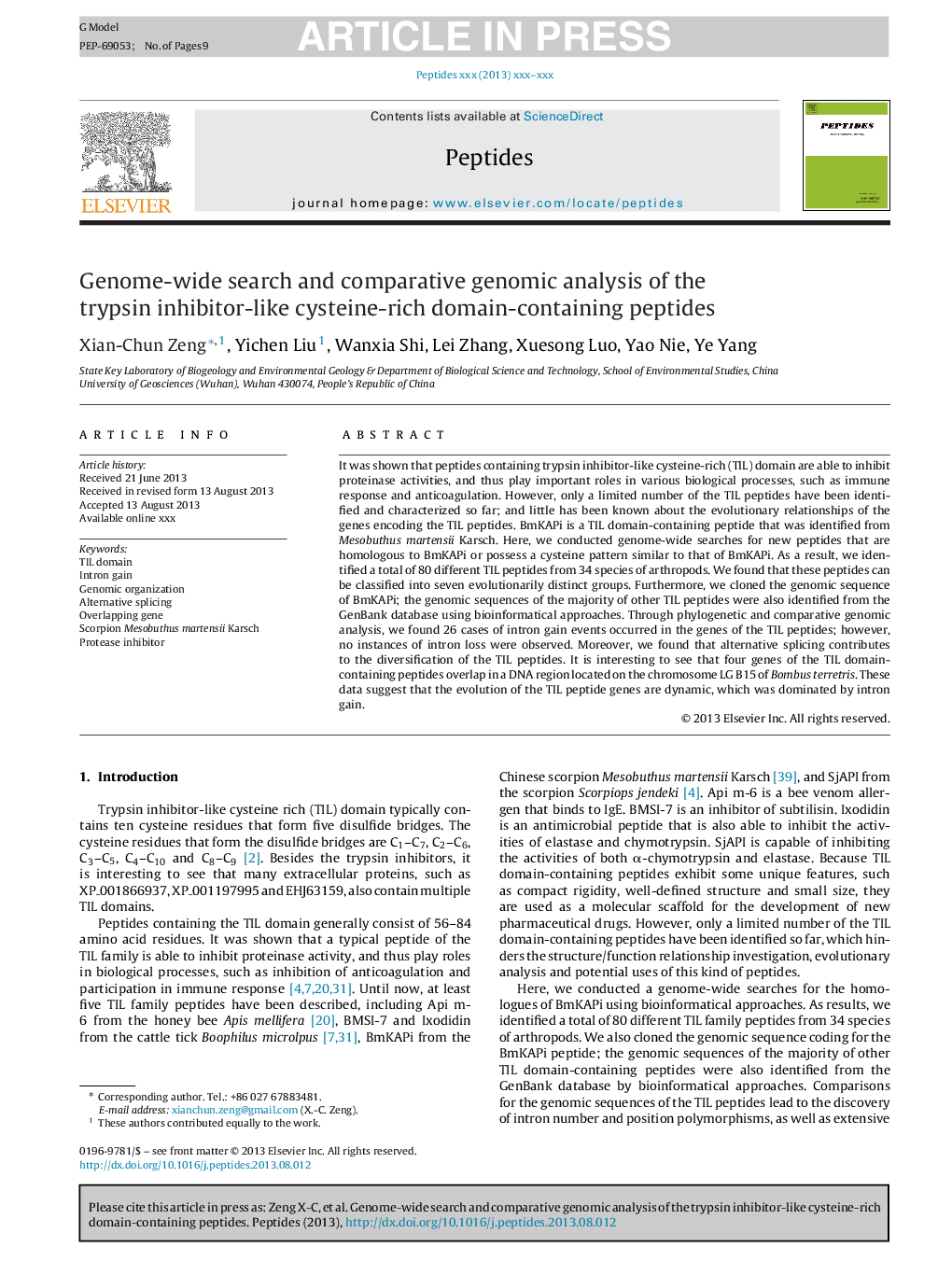| Article ID | Journal | Published Year | Pages | File Type |
|---|---|---|---|---|
| 8348422 | Peptides | 2014 | 9 Pages |
Abstract
It was shown that peptides containing trypsin inhibitor-like cysteine-rich (TIL) domain are able to inhibit proteinase activities, and thus play important roles in various biological processes, such as immune response and anticoagulation. However, only a limited number of the TIL peptides have been identified and characterized so far; and little has been known about the evolutionary relationships of the genes encoding the TIL peptides. BmKAPi is a TIL domain-containing peptide that was identified from Mesobuthus martensii Karsch. Here, we conducted genome-wide searches for new peptides that are homologous to BmKAPi or possess a cysteine pattern similar to that of BmKAPi. As a result, we identified a total of 80 different TIL peptides from 34 species of arthropods. We found that these peptides can be classified into seven evolutionarily distinct groups. Furthermore, we cloned the genomic sequence of BmKAPi; the genomic sequences of the majority of other TIL peptides were also identified from the GenBank database using bioinformatical approaches. Through phylogenetic and comparative genomic analysis, we found 26 cases of intron gain events occurred in the genes of the TIL peptides; however, no instances of intron loss were observed. Moreover, we found that alternative splicing contributes to the diversification of the TIL peptides. It is interesting to see that four genes of the TIL domain-containing peptides overlap in a DNA region located on the chromosome LG B15 of Bombus terretris. These data suggest that the evolution of the TIL peptide genes are dynamic, which was dominated by intron gain.
Related Topics
Life Sciences
Biochemistry, Genetics and Molecular Biology
Biochemistry
Authors
Xian-Chun Zeng, Yichen Liu, Wanxia Shi, Lei Zhang, Xuesong Luo, Yao Nie, Ye Yang,
